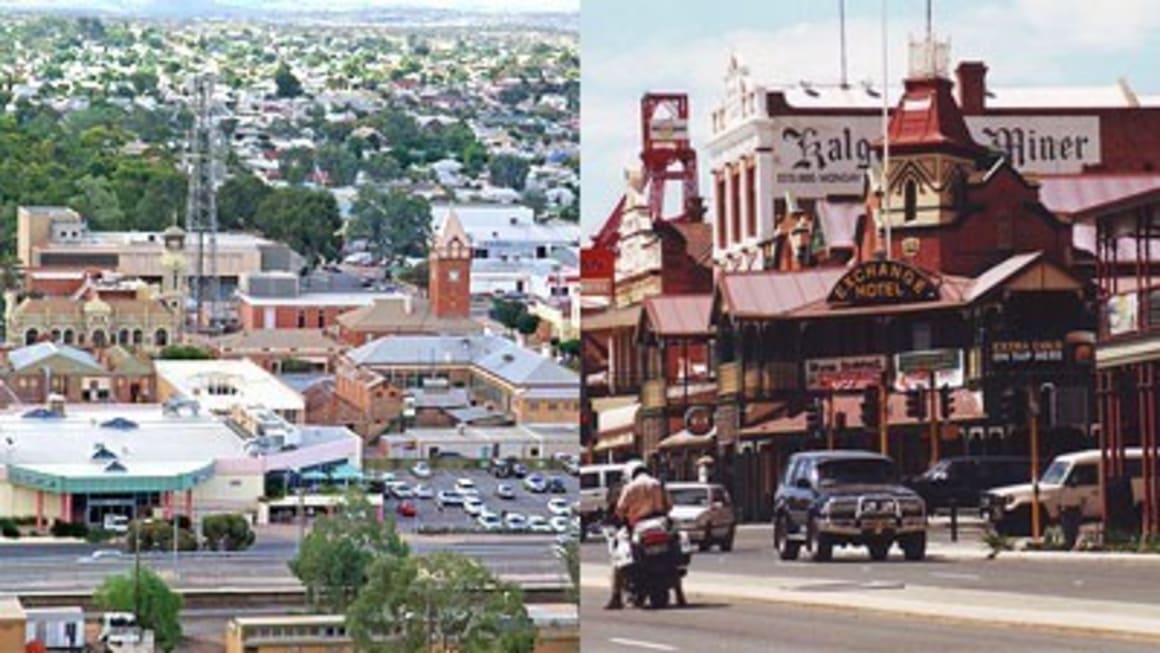Broken Hill and Kalgoorlie no longer as risky for property investors but some mining towns unsustainable: Westpac

They may be remote, dusty places steeped in more than a century of mining history, but Broken Hill and Kalgoorlie-Boulder are no longer risky places to lend money to property investors, Westpac has decided.
The bank has removed both regional locations from a list of “single-industry” towns where property investors will struggle to get a Westpac loan, ruling that house prices and rental yields are now at sustainable levels in these two postcodes.
However, it has added a host of regional mining hotspots to its “single-industry” policy, including Moranbah in Queensland and Port Hedland in WA as it pulls back from lending in what it deems unsustainable housing markets, according to an internal memorandum issued by Westpac to mortgage brokers obtained by Property Observer.
The post codes that have been added to the list are in Queensland:
- Blackwater (4714)
- Moranbah (4744)
- Dysart (4745)
- Middlemount and May Downs in the Isaac region (4746)
And in Western Australia:
- Roebourne (including Karratha, Baynton, Bulgarra and Pegs Creek in post code 6714)
- Port Hedland (including South Hedland in post code 6721)
- East Pilbara (post code 6753)
For investors in these postcodes the bank says it will now discount rental income listed as security on mortgage applications by 40%, taking into account the risk of vacancies.
“An application with security in a single-industry town will have all rental income assessed at 60%,” says the bank in a note to mortgage brokers.
The new requirement is in addition to the rule that a 30% deposit is required in these postcodes for property to avoid the added burden of lenders mortgage insurance (LMI) – well above the usual 20% deposit requirement.
The policy changes apply to two investment loans – Westpac’s variable rate Equity Access Loan (EAL) and its fixed-rate investment property loan (IPL).
The decision to exempt Broken Hill is particularly surprising in light of its history.
The town of 23,000, situated 1,160 kilometres from Sydney, is the birthplace of what is now the world’s biggest mining company BHP Billiton and has a rich mining history dating back to the discovery of silver ore in 1883.
But Westpac spokesperson Danny John says in both Broken Hill and Boulder house price growth has pulled back while rental yields are in a more sustainable range.
“Broken Hill is still reliant on mining, but it has diversified into tourism. There are now lower mortgage delinquency rates, while house prices have slipped back and rental yields are between 5% and 6%.
“Boulder is still reliant on mining, but has stable house prices and rental yields of about 7% with the housing market in pretty good shape,” John says.
In November last year Hotspotting.com.au’s Terry Ryder – who is generally wary of recommending traditional mining hotspots – wrote that Broken Hill should no longer be seen as just a one-horse mining town.
“Traditionally reliant on mining and agriculture, Broken Hill is developing new economic drivers, including tourism and the arts,” Ryder said.
Ryder quoted Broken Hill mayor Wincen Cuy as saying that visitors find it to be “bigger, greener and cleaner” than they expect.
As to the decision to add the WA and Queensland mining towns to the list, John says Westpac is concerned that in these locations the mining boom is driving house prices and rental yields to relatively unsustainable levels.
As an example, he says house prices have jumped 44% in Moranbah with yields at 13.5%, with property valuers telling Westpac that these figures are not sustainable.
Real Estate Institute of WA president David Airey says the changes probably reflects a view from within the bank that “housing prices and rental returns in particular, in places like Karratha, Port Hedland, South Hedland and Newman are unsustainable”.
“The state government is anxious to address affordability in the Pilbara, and while this won’t happen overnight it’s clear that housing demands will be better met over the next few years.
“In contrast, the steady growth and more affordable market of Kalgoorlie-Boulder perhaps offers greater confidence to lenders,” he says.
Airey says Westpac has the right to “calibrate its business model as it sees fit”.
“But it would be a pity if the result meant that investors were less inclined to supply much needed housing in the state’s northwest. In some ways it’s a Catch-22 situation,” he adds.
Real Estate Institute of Queensland (REIQA) CEO Anton Kardash says lending criteria for remote areas has been restricted for some time given these areas are often reliant on single industries for employment.
“Investors in these areas need to be aware that lenders will require a larger deposit dependent on the element of risk lenders attribute to buying property in a specific region.”
Jane Slack-Smith, director at Investors Choice Mortgages, says the change in policies indicate that Westpac is less keen to lend in mining locations.
“The bank is discounting rental income to allow for vacancies,” she tells Property Observer.
Slack-Smith says Westpac is implementing these changes in places like Karratha despite her clients being able to ask rent of $2,000 per week over a five year lease.
“Some lenders will take 100% of rental income, but Westpac only takes 60% of income.
“Some lenders don’t have postcode restrictions,” she says.
Broken Hill and Kalgoorlie images courtesy of Flickr.